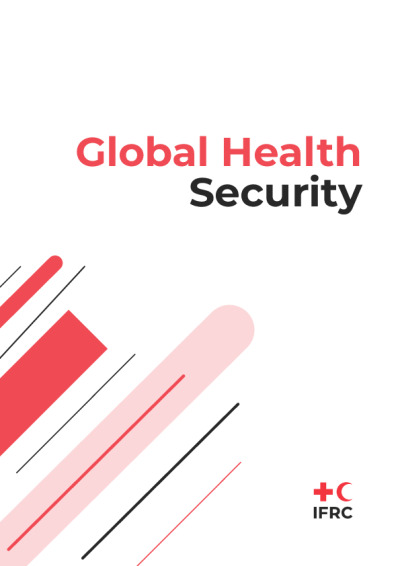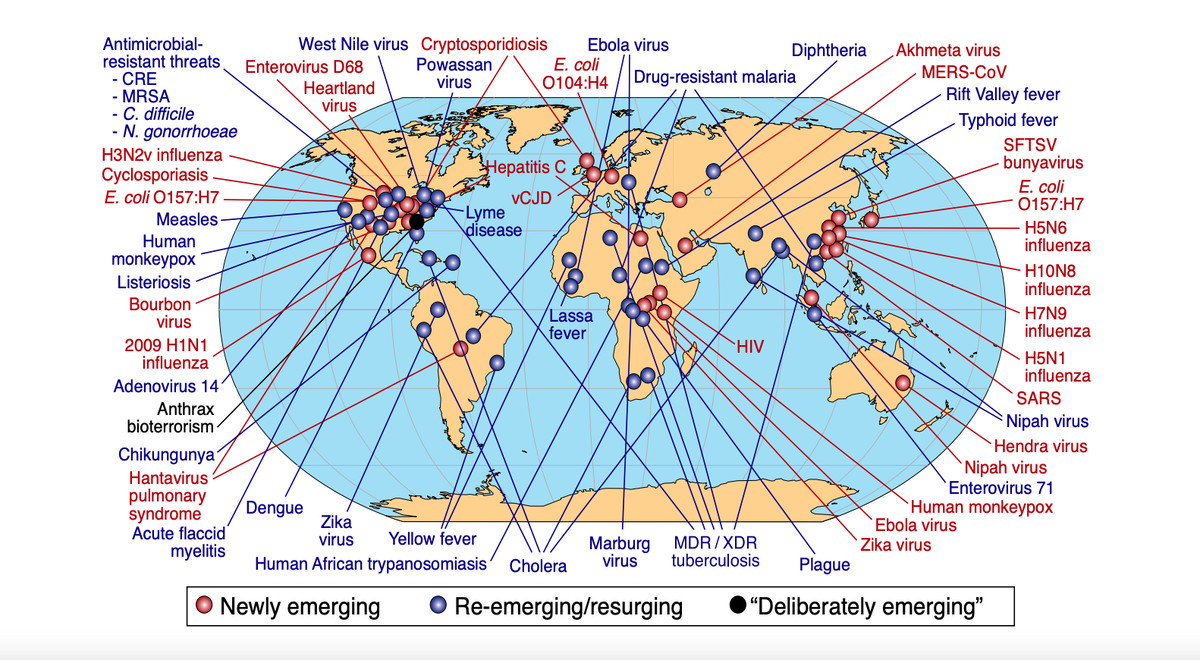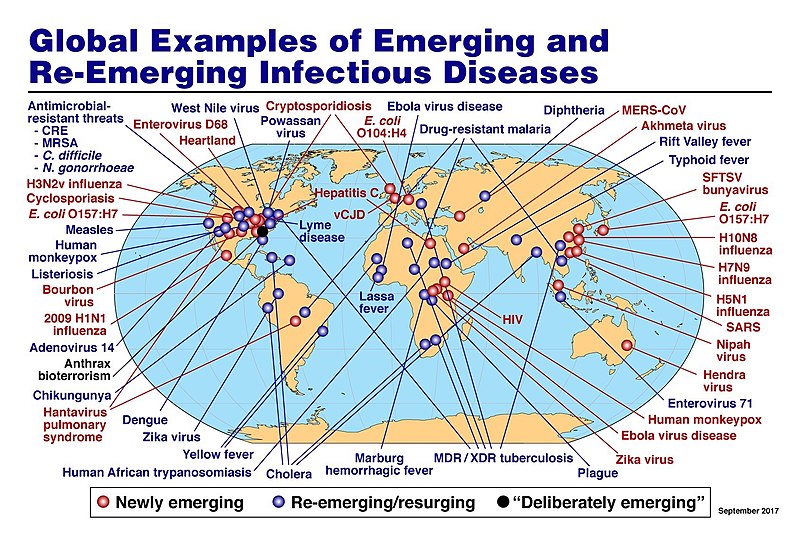
Infectious diseases have always been a major concern for humanity, but the past few years have shown us just how much of a threat they can be to global health. From the outbreak of the COVID-19 pandemic in 2019 to the ongoing spread of other infectious diseases such as malaria, tuberculosis, and HIV/AIDS, it is becoming increasingly clear that we need to be better prepared to face these challenges.
What are Infectious Diseases?

Infectious diseases are caused by microorganisms such as bacteria, viruses, fungi, and parasites. They can be transmitted from one person to another through various means, including direct contact, airborne transmission, and ingestion of contaminated food or water.
Some of the most common infectious diseases include influenza, measles, pneumonia, hepatitis B and C, and human papillomavirus (HPV). These diseases can range from mild illnesses to severe conditions that can cause lasting damage to the affected person’s health.
Global Health Threats

Infectious diseases pose a significant threat to global health, particularly in developing countries where access to healthcare and resources is limited. According to the World Health Organization (WHO), infectious diseases account for approximately one-third of all deaths worldwide.
In recent years, we have seen the emergence of new infectious diseases that pose a significant threat to global health. These include the Ebola virus, Zika virus, and COVID-19. These diseases can spread quickly and have the potential to cause widespread devastation if not properly contained.
The global community must work together to develop effective strategies to prevent and control the spread of infectious diseases. This requires coordinated efforts from governments, healthcare professionals, and individuals alike.
Pandemic Preparedness

Pandemic preparedness refers to the measures taken to prevent, detect, and respond to a potential pandemic. This includes developing effective vaccines, implementing surveillance systems to monitor the spread of infectious diseases, and establishing emergency response plans in the event of an outbreak.
The COVID-19 pandemic has highlighted the need for better pandemic preparedness. Despite warnings from experts, many countries were caught off guard by the rapid spread of the virus. Governments and healthcare systems around the world struggled to cope with the surge in cases, resulting in widespread illness, death, and economic disruption.
Moving forward, it is crucial that we prioritize pandemic preparedness to prevent future outbreaks from causing similar levels of devastation. This includes investing in research to develop new vaccines and treatments, strengthening public health systems, and improving international collaboration to ensure a coordinated response to potential pandemics.
The Importance of Vaccines

Vaccines play a critical role in preventing the spread of infectious diseases. They work by stimulating the immune system to produce antibodies that can recognize and neutralize specific pathogens.
In recent years, there has been a growing anti-vaccine movement that has gained traction in many parts of the world. This movement is fueled by misinformation and fear, often leading to low vaccination rates and increased susceptibility to infectious diseases.
It is important to note that vaccines are safe and highly effective at preventing the spread of infectious diseases. They have played a significant role in reducing the prevalence of diseases such as measles, polio, and smallpox.
Conclusion
Infectious diseases and global health threats continue to be a major concern for humanity. The ongoing COVID-19 pandemic has highlighted the need for better pandemic preparedness and a coordinated global response to potential outbreaks.
Moving forward, it is crucial that we prioritize research and development of new vaccines and treatments, strengthen public health systems, and improve international collaboration to prevent the spread of infectious diseases and protect global health.
FAQs
Q1. What is the most effective way to prevent the spread of infectious diseases?
A: The most effective way to prevent the spread of infectious diseases is through vaccination, practicing good hygiene, and avoiding contact with infected individuals.
Q2. How can we improve pandemic preparedness?
A: We can improve pandemic preparedness by investing in research and development of new vaccines and treatments, strengthening public health systems, and improving international collaboration to ensure a coordinated response to potential pandemics.
Q3. Why are infectious diseases more prevalent in developing countries?
A: Infectious diseases are more prevalent in developing countries due to limited access to healthcare and resources, poor sanitation, and overcrowding.
Q4. Are vaccines safe?
A: Yes, vaccines are safe and highly effective at preventing the spread of infectious diseases.
Q5. What is the role of governments in pandemic preparedness?
A: Governments play a critical role in pandemic preparedness by establishing emergency response plans, investing in research and development of new vaccines and treatments, and coordinating international efforts to prevent and control the spread of infectious diseases.



